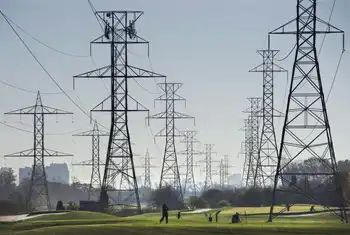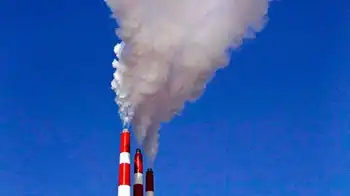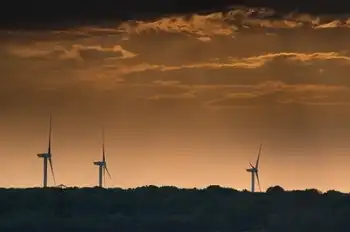Utility seeks to block gas exports
ANCHORAGE, ALASKA - An Anchorage utility wants a federal appeals court to block exports of Cook Inlet natural gas to Asia.
Chugach Electric Association generates much of the power it sells by burning natural gas.
The utility's petition — with the San Francisco-based 9th U.S. Circuit Court of Appeals — challenges a U.S. Department of Energy decision.
The June decision would allow oil companies, ConocoPhillips and Marathon, to keep exporting Cook Inlet gas through March 2011.
Chugach's Sept. 26 petition is the latest sign of rising local energy tensions in southcentral Alaska, where natural gas is a critical commodity for heating and powering homes and businesses.
Cook Inlet gas fields once held far more gas than needed for local needs.
But gas reserves have begun to dwindle. Signs of tightening supply have shown up in the form of higher retail gas prices as well as the closure of a gas-dependent fertilizer plant in Nikiski.
"Chugach is the largest electric utility in the state of Alaska," Suzanne Gibson, the utility's energy resources director, said in a statement. "We have an obligation and duty to protect our customers by ensuring that there is adequate natural gas in Cook Inlet and that it is available at a reasonable price. That is why we are involved in this case."
Conoco and minority partner Marathon have been exporting liquefied natural gas, or LNG, from the Kenai Peninsula since 1967. The gas is cooled into a liquid and loaded onto tankers bound for utility customers in Japan.
Historically the process accounts for more than a third of total consumption of Cook Inlet gas.
The DOE's Office of Fossil Energy authorized LNG exports for two more years beginning in April, judging Cook Inlet gas as sufficient to meet both local and export demand.
Chugach's request for a rehearing of the DOE order was denied.
Robert Corbin, a DOE official who signed the export order, said he has been advised by government attorneys not to comment on the Chugach court challenge.
A Conoco spokeswoman, Natalie Lowman, also declined comment.
Gov. Sarah Palin and other export supporters said continued overseas gas shipments could encourage Conoco and others to drill for new gas supplies.
But the Regulatory Commission of Alaska recently raised concern about the DOE decision.
The five-member commission said in an October order that the DOE as well as state officials "could have done a better job in ensuring that local needs were met at reasonable pricing terms before the LNG export license was extended."
The panel at the time was considering two wholesale gas supply contracts for Enstar Natural Gas Co.
Related News

State-sponsored actors 'very likely' looking to attack electricity supply, says intelligence agency
OTTAWA - State-sponsored actors are "very likely" trying to shore up their cyber capabilities to attack Canada's critical infrastructure — such as the electricity supply — to intimidate or to prepare for future online assaults, a new intelligence assessment warns.
"As physical infrastructure and processes continue to be connected to the internet, cyber threat activity has followed, leading to increasing risk to the functioning of machinery and the safety of Canadians," says a new national cyber threat assessment drafted by the Communications Security Establishment.
"We judge that state-sponsored actors are very likely attempting to develop the additional cyber capabilities required to disrupt…




